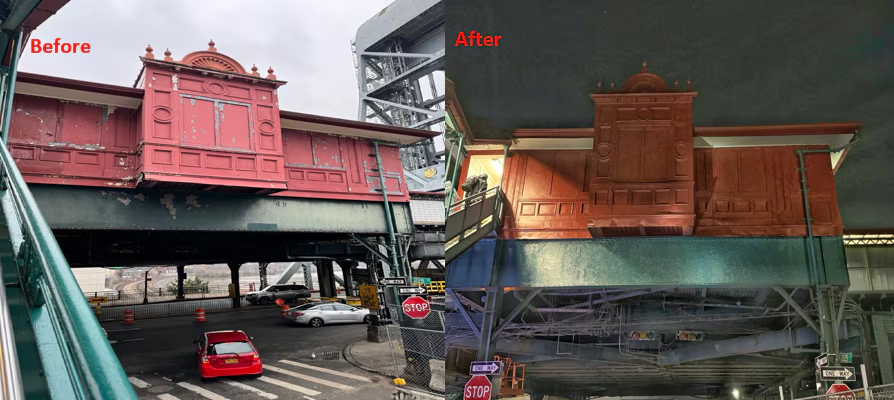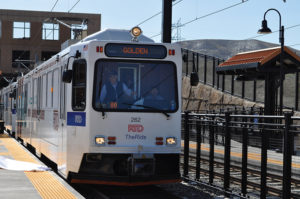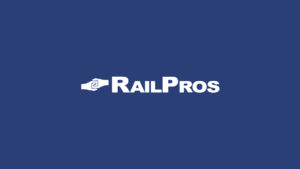2010 Professional Environmental Excellence Award to David C. Clark of BNSF Railway
Written by jroodThe Association of American Railroads awarded the 2010 Professional Environmental Excellence Award to BNSF Railway Director of Environmental Remediation David C. Clark. Based in Topeka, Kan., Clark has 35 years of environmental experience all within the rail industry. The award was presented at the annual Railroad Environmental Conference at University of Illinois, Urbana. "The concept of environmental excellence is vitally important to railroads - it not only helps our companies with efficiency and sustainability, but also benefits the communities we serve and move through every day," said AAR President and CEO Edward R. Hamberger. "David Clark is a wonderful example for all rail employees in his dedication to BNSF and the industry's overall progress in achieving environmental excellence." Clark is a professional engineer and for the past 16 years has been focused on directing the remediation activities for the BNSF system. Today, he oversees a staff of nine environmental professionals who handle all historical site cleanups, serve as primary contacts with environmental emergency response and oversees the environmental aspects of property transactions. Over the past several years, he has established several critical company programs, such as: - a program to help track expenditures and cost projections for the company's $75 million annual remediation program with nearly 400 sites system wide; - a central laboratory management program that has cut $15 million in lab-related expenses over the past eight years and includes regular audits to ensure only the highest quality data, and - a preferred consultant program that has reduced the number of consultants working on remediation sites from 35 to 6, saving $3 million annually and ensuring more uniform project oversight. In addition to the many ways he has helped BNSF, Clark also has been an active an influential leader among environmental professionals within the railroad industry. He has served on committees at the U.S. Chamber of Commerce, AREa Committee 13, as well as the AAR Environmental Affairs and Tank Car committees. Clark was one of five railroad industry professionals nominated for the award which recognizes an individual who has demonstrated outstanding performance in environmental awareness and responsibility during the year. The four other nominees are as follows (alphabetically): Linda S. Holmes is a Huntington W. Va.-based supervisor of environmental field services for CSX Transportation Inc., where she has been an accomplished environmental leader during her 29 year career with the company. Her expertise and oversight has resulted in 100 percent environmental compliance at 44 company facilities, including one of the largest locomotive heavy repair shops in North America. Holmes also was the first female to obtain the company's certification as a Hazardous Materials Sentinel. Among the many innovative company programs she has initiated, is a pilot to improve the storage and packaging of fluorescent lamps to be recycled; a program in the company's major car repair facilities to replace products with high-VOC compounds with water-based, low-VOC coating compounds, and a special modification of oil belt skimmers that has dramatically improved operation and maintenance costs. Her outstanding operation of a wastewater treatment plant in Newport News, Va., has earned several Silver Star Awards, while her sustainability efforts last year in a major rail yard resulted in a Platinum Award. Gary L. Honeyman is a Laramie, Wyo.-based, manager of environmental site remediation at Union Pacific Railroad (UP). He is responsible for site remediation projects that have produced tremendous community benefits. For example, he's helped establish a 72-mile trail that received the EPA Phoenix Award, a 2.5-mile walking loop that attracts thousands of people annually, as well as a successful light-rail operation. He also has championed a change in UP's approach to site remediation, proving the business case to change the remediation solution from monitoring to removing contaminated material. Expanding the concept across the railroad has saved $12 million over five years. In one case involving a local transit district, Honeyman developed a cost-effective soil management plan that ensured impacted soils generated during construction were properly managed without interfering or delaying construction, saving the company an estimated $2 million and ensuring the project was completed on time. This project was so successful that the transit agency plans to use it as a model for three future light rail development projects. Harri Liivamägi, P.Eng., CRM, is a Winnepeg, Manitoba-based environmental engineer with 32 years at Canadian National Railway (CN). After beginning his career with CN as a summer student on engineering survey crews, today he is well respected by his colleagues and environmental regulators at all levels of government. He has successfully arranged the mitigation of significant hazardous materials releases at both derailments and facilities at 39 major derailments and 15 facility incidents. In one such case, his suggestion to burn off diesel fuel at two unrelated, remote derailment sites successfully eliminated fuel in the environment, preventing impacts along the shores of a nearby creek and lake as well as the town's downstream drinking water supply. At a derailment site involving a locomotive fuel tank spill of 3000 gallons into an adjacent ice covered lake, Liivamägi suggested hiring a nearby native community's commercial fishermen to install sorbent booms under the ice by using the fishers' ice jiggers. The ice jiggers are normally used by winter fishers to install fish nets under the ice. Susan M. McFaul is a Chicago-based field environmental specialist with Amtrak. Since joining the railroad in 2005, she is responsible for environmental compliance and activities at the Chicago yard and has a critical role in certain environmental functions throughout the Central Division. Her leadership over the last five years included establishing a recycling program at the Chicago Yard which has resulted in a 37 percent increase in revenue from used oil and scrap by recycling over 160,000 gallons of used oil and 81 tons of steel scrap. McFaul trains nearly 1000 employees annually on various regulatory and compliance issues, and conducts regular job briefings and trouble-shooting sessions with waste water treatment and fueling operators, vendors, and other contractors. She also lead an energy audit Amtrak's Brighton Park facility in Chicago which has resulted in reduced energy consumption costs of over $50,000 per year, making Brighton Park the first facility in Central Division to comply with the company's initiative to reduce energy usage and costs.





